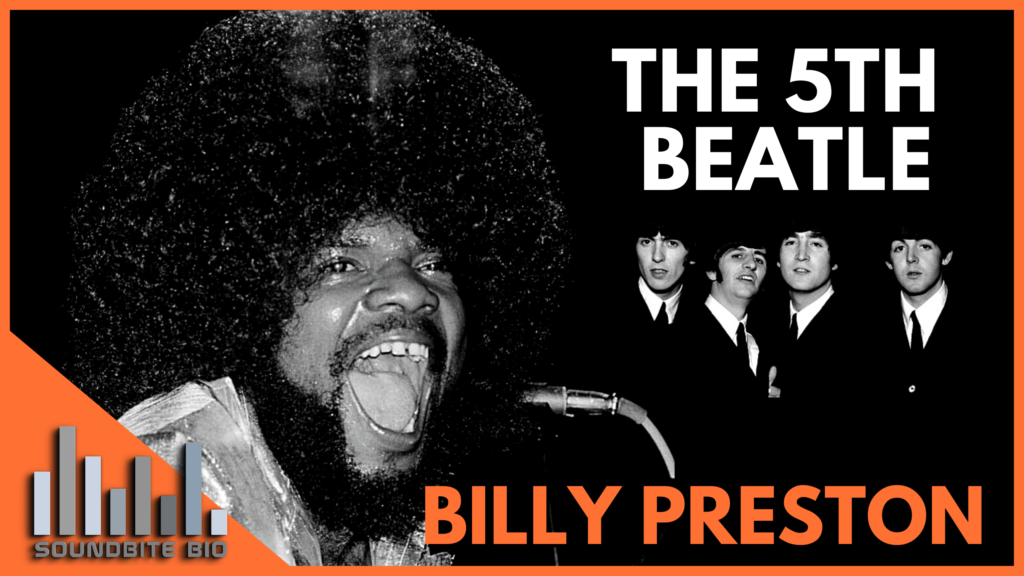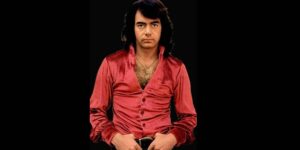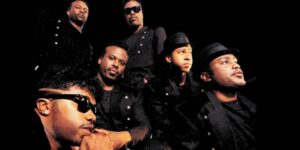As an investigative reporter delving into the rich tapestry of rock history, few relationships stand out like the complex one between Paul McCartney and Billy Preston. Both legendary musicians in their own right, their interactions during the later years of The Beatles and beyond have been the subject of whispers, conflicting narratives, and strained dynamics. On the surface, Preston, often called the “Fifth Beatle” for his contributions to the Let It Be sessions, seemed to fit naturally into The Beatles’ world. However, beneath the surface, tensions—particularly with Paul McCartney—have long simmered, rooted in creative differences, ego, and the pressure-cooker environment that marked the end of The Beatles.
The Early Days: From Session Musician to “Fifth Beatle”
Billy Preston’s entry into The Beatles’ orbit came in 1969 during the Let It Be recording sessions. Having met the band years earlier during their stint in Hamburg, Preston was reintroduced by George Harrison at a time when The Beatles were on the verge of fracturing. The decision to bring in an outside musician was, in part, an attempt to ease the internal conflicts plaguing the group. Harrison knew that Preston’s talent and easygoing demeanor could act as a kind of buffer.
Preston’s contribution to tracks like “Get Back” and “Something” was undeniable. His keyboard work not only added a fresh dynamic but also brought a renewed energy to a band that was weary of its own internal strife. The often-quoted story was that Preston’s presence forced the other Beatles, especially McCartney, to behave more civilly in the studio. But while things may have appeared harmonious in the short term, Preston’s rise in The Beatles’ ranks planted the seeds of a quieter conflict.
McCartney’s Control vs. Preston’s Creative Freedom
To understand the growing tension between Paul McCartney and Billy Preston, one must consider McCartney’s role in The Beatles during this era. McCartney had, by this time, become the de facto leader, especially as John Lennon became more withdrawn and interested in his relationship with Yoko Ono. McCartney was determined to steer the band through its final chapter, which often manifested as a need for control.
McCartney’s approach to Let It Be was driven by his desire to restore The Beatles to their roots as a live band, free of studio trickery. Preston’s inclusion fit well with this vision, but as Preston’s influence on the music grew, so did the tension with McCartney. According to those close to the sessions, McCartney began to feel that Preston was infringing on territory that was traditionally his own. After all, McCartney had been not only the band’s bassist but also its most dominant musical arranger by the late ’60s. Preston’s creative freedom and natural improvisational style clashed with McCartney’s more meticulous and perfectionist approach.
The disagreements didn’t always occur outright, but insiders note that McCartney’s more subtle moves often made things difficult for Preston. McCartney’s insistence on re-recording tracks or fine-tuning the smallest details was at odds with Preston’s style. “Get Back”—a song where Preston’s keyboard work became a defining feature—was also a song where McCartney’s leadership was most visible, and perhaps, most oppressive.
George Harrison: Caught in the Middle
While McCartney and Preston butted heads over creative direction, George Harrison found himself squarely in the middle. Harrison had brought Preston into the fold, seeing him as not just a talented musician but a personal ally. At the time, Harrison was often at odds with McCartney over songwriting contributions and control over the band’s direction, and Preston’s presence was a way for Harrison to assert more influence.
However, Harrison’s loyalty to both men complicated matters. In later interviews, Harrison alluded to the fact that McCartney and Preston had fundamentally different approaches to music. Harrison and Preston shared a love for spontaneous, soulful playing, while McCartney, ever the craftsman, sought precision and structure.
The Breakup and Aftermath
By the time The Beatles officially disbanded in 1970, the friction between McCartney and Preston had largely been overshadowed by the larger, more public conflicts between McCartney and Lennon. However, McCartney’s lingering bitterness over the Let It Be sessions and Preston’s role in them never fully dissipated.
Years later, when McCartney revisited the Let It Be material during the Let It Be… Naked project, insiders noted that McCartney downplayed Preston’s contributions, favoring mixes that minimized his role. This decision wasn’t entirely surprising to those who understood McCartney’s desire to reclaim the band’s legacy and his complex feelings toward Preston’s prominent position in their final chapter.
Preston’s Struggles and McCartney’s Distance
The years following The Beatles’ breakup were difficult for Billy Preston, both professionally and personally. Though he continued to work with top artists like George Harrison and The Rolling Stones, Preston’s career never quite reached the heights many expected, and he struggled with substance abuse. During this time, McCartney maintained a noticeable distance from Preston, despite having shared such a critical chapter of their careers.
Some have speculated that McCartney’s coldness was born from unresolved tensions during the Let It Be era, while others believe McCartney’s general withdrawal from former Beatles collaborators post-breakup was the cause. In any case, Preston’s later years were marked by a sense of regret that he never fully reconciled with McCartney.
Closing Notes: A Relationship Never Repaired
By the time Billy Preston passed away in 2006, his relationship with Paul McCartney remained largely unspoken. McCartney issued a polite public statement acknowledging Preston’s contributions to The Beatles but stopped short of any deep personal reflection on their shared history.
While McCartney’s relationship with the other Beatles evolved and healed over time, the story of McCartney and Billy Preston remains one of unresolved tension, hidden beneath the surface of their shared musical legacy. In the end, the man who brought so much soul to The Beatles’ final days would remain a bittersweet chapter in McCartney’s long and winding career, a reminder of the creative and personal clashes that often shape music history behind closed doors.
Watch Billy Preston The 5th Beatle Documentary, Here







